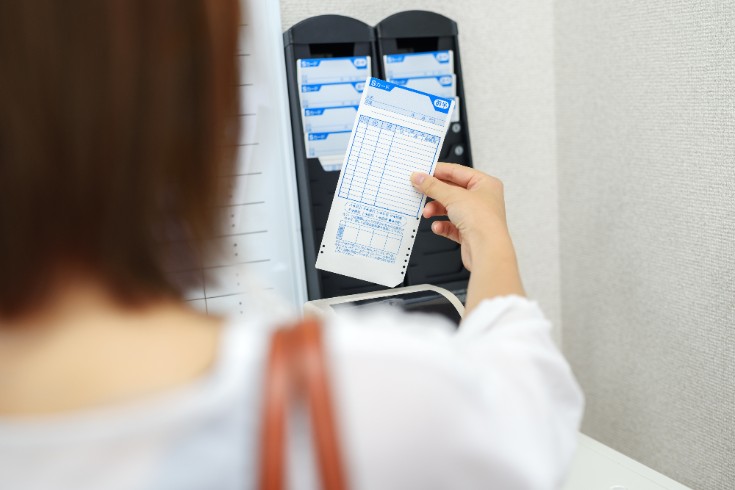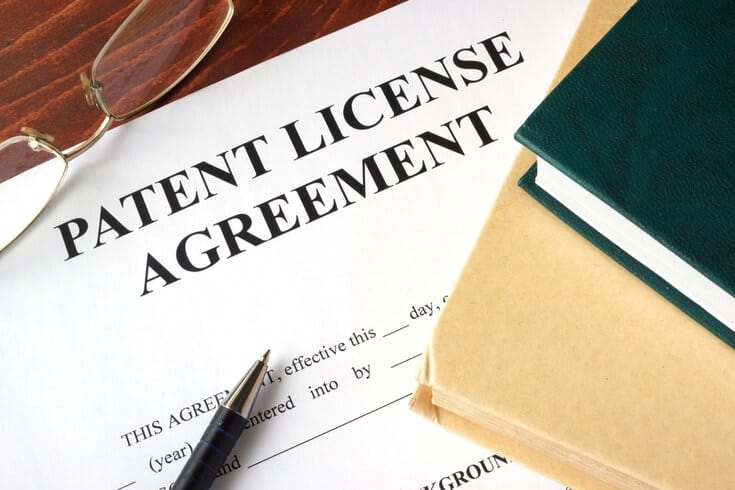Presumed Infringement and Criminal Penalties under Japanese Copyright Law: Legal Risks Companies Should Be Aware Of

For companies operating in Japan, copyright compliance is not merely a legal procedure but a crucial pillar of corporate governance and risk management. Copyright infringement can lead to serious management risks, such as financial losses due to high compensation claims, operational suspension from injunctions, and significant reputational damage that can severely affect a company’s social standing. It is particularly important to note that Japanese copyright law regulates not only direct acts of infringement, such as unauthorized reproduction or public transmission of works but also preparatory and contributory acts that are considered equivalent. This legal concept is known as “deemed infringement,” and it poses potential risks to many corporate activities. In today’s business environment, where digital transformation is accelerating and global supply chains have become the norm, the risk of copyright infringement is no longer limited to specific industries. The use of software, creation of marketing materials, and management of digital content are activities inherent with copyright infringement risks in every company. This article will explain from a corporate perspective the specific content of “deemed infringement” under Japanese copyright law and the civil and criminal liabilities that accompany it.
The Legal Framework of “Deemed Infringement” Under Japanese Copyright Law
In Japan, the Copyright Law stipulates in its Article 113 that certain acts are “deemed to be infringing activities.” The legislative intent of this “deemed infringement” provision is to effectively counter sophisticated forms of rights violations, such as piracy. Proving the act of creating infringing materials is often a significant challenge for rights holders, as it is frequently conducted in secrecy. Therefore, the law aims to ensure the effectiveness of rights protection by regulating not only the act of creation but also the relatively easier-to-capture subsequent acts of distribution, such as importation, distribution, possession, and use. This approach shifts the focus of law enforcement from reactive responses to preventive measures that aim to stop the spread of infringement before it occurs. For companies, this means that legal responsibilities within their supply chains and business processes may arise earlier than previously thought. For example, even without reaching the point of sale or use, merely storing pirated products in a warehouse could lead to legal liabilities.
Presumed Infringement 1: Acts Related to the Distribution of Pirated Copies
Article 113, Paragraph 1 of the Japanese Copyright Law primarily stipulates acts related to the distribution of pirated copies, whether in physical or digital format, as presumed infringement.
Importation of Pirated Copies
Under Japanese Copyright Law, Article 113, Paragraph 1, Item 1 considers the act of importing pirated copies with the intent to distribute within Japan as copyright infringement. The critical point here is that the determination is based on whether the item would constitute an infringement if it had been created within Japan. This means that even if the item was legally produced in the country of manufacture, it would be deemed an infringing copy under Japanese Copyright Law if imported. When companies import products, components, or promotional materials from abroad, it is essential to perform due diligence with suppliers to ensure that these items do not infringe on third-party copyrights.
Distribution, Possession, and Exportation of Pirated Copies
Article 113, Paragraph 1, Item 2 of the Japanese Copyright Law targets multiple acts that regulate the domestic circulation and outflow of pirated copies to foreign countries. First, the act of distributing or possessing with the intent to distribute an item known to be created through copyright-infringing activities is considered presumed infringement. The requirement of “knowing the situation” is not as simple as companies being exonerated by claiming ignorance. If there are circumstances that should raise suspicion of infringement, such as the transaction price being significantly lower than the market price or the source being an irregular route, and no verification is made, “willful blindness” or negligence may be recognized. This imposes a proactive duty of care in the procurement process on companies. Furthermore, the same provision also deems the act of exporting pirated copies as a business, or possessing them with the intent to export as a business, as presumed infringement. This regulation was introduced with the aim of preventing Japan from being used as a transit point for international pirated copy distribution.
Presumed Infringement 2: Acts in the Digital Environment Under Japanese Copyright Law
With the advancement of digital technology, copyright law has adapted to address forms of infringement unique to the digital environment. Particularly relevant to corporate activities are the unauthorized use of computer programs and the alteration of rights management information.
The Use of Pirated Computer Programs
Generally, copyright law does not directly regulate the ‘use’ of copyrighted works but targets specific acts such as reproduction and public transmission as subjects of rights. However, there is an exceptional provision for computer programs. Article 113, Paragraph 5 of the Japanese Copyright Law stipulates that knowingly using a copy of a pirated computer program on a computer for business purposes constitutes copyright infringement. This provision effectively curbs acts that cause significant economic harm to copyright holders, such as violating license agreements by installing and using software without restriction within an organization. ‘For business purposes’ broadly includes all activities within a company or organization, not limited to profit-seeking activities. The determination of ‘knowingly’ tends to be strictly interpreted. For example, in the System Science case (Tokyo District Court, October 30, 1995), even an unconfirmed judicial decision, such as a first-instance judgment or provisional disposition, can fulfill the ‘knowingly’ requirement if it publicly indicates that the program in question infringes copyright. This suggests that continuing to use software under litigation as ‘no problem until the judgment is final’ poses the risk of being considered a new infringement. Therefore, companies must thoroughly implement software license management systems and establish strict internal controls to prevent employees from installing unauthorized copies.
Acts of Adding, Removing, or Altering Rights Management Information
Article 113, Paragraph 8 of the Japanese Copyright Law is a provision to protect the rights information of digital works. Rights management information refers to electronically attached information such as the copyright owner’s name and terms of use. Under this provision, intentionally adding false rights management information or intentionally removing or altering legitimate rights management information is considered presumed infringement. Similarly, distributing or publicly transmitting copies of works with rights management information that has been unlawfully removed or altered, knowing this fact, also constitutes presumed infringement. This provision prohibits acts that obscure the origin and rights relationships of digital content, thereby promoting infringement.
Comparative Analysis of Presumed Infringement Acts Under Japanese Copyright Law
The key requirements for the main presumed infringement acts previously discussed are summarized in the table below. This table clarifies under what conditions legal liability arises, serving as a reference for companies to assess their risks.
| Type of Act | Main Requirements | Legal Basis |
| Importation of Pirated Copies | ・Intended for distribution within Japan ・At the time of import, would constitute an infringement if produced in Japan | Article 113, Paragraph 1, Item 1 of the Japanese Copyright Law |
| Distribution/Possession of Pirated Copies | ・Awareness that the copies are pirated ・Act of distribution, or possession with the intent to distribute | Article 113, Paragraph 1, Item 2 of the Japanese Copyright Law |
| Exportation of Pirated Copies | ・Export conducted “in the course of business” ・Possession with the intent to export | Article 113, Paragraph 1, Item 2 of the Japanese Copyright Law |
| Use of Pirated Software | ・Use “in the course of business” ・Awareness at the time of acquisition of the right to use that the software was pirated | Article 113, Paragraph 5 of the Japanese Copyright Law |
| Alteration of Rights Management Information | ・Intentionally adding false information, or removing/altering information ・Distributing the altered product with knowledge of the fact | Article 113, Paragraph 8 of the Japanese Copyright Law |
Civil Remedies for Copyright Infringement in Japan
When copyright infringement, including presumed infringement, occurs, the rights holder can seek two main civil remedies against the infringer: an injunction and a claim for damages.
Injunction Request
Under Article 112 of the Japanese Copyright Law, a rights holder can demand the cessation of the infringement from the party currently committing the act, and prevention from those who are likely to infringe. This includes demanding the disposal of items created through the infringement and the removal of equipment used in the act, as necessary measures to stop or prevent further infringement. A key feature of an injunction request is that there is no need to prove the infringer’s intent or negligence. This allows the rights holder to quickly halt the infringement and prevent further damage. For companies, receiving an injunction can lead to an immediate and direct impact on their business, such as stopping product shipments or service offerings, with potentially significant effects.
Claim for Damages
If copyright infringement occurs due to the infringer’s intent or negligence, the rights holder can claim damages based on Article 709 of the Japanese Civil Code. Since proving the amount of damages in copyright infringement cases is often challenging, Article 114 of the Japanese Copyright Law provides special provisions to alleviate the burden of proof for the rights holder. The main methods for calculating damages are as follows: First, multiplying the number of infringing items sold by the infringer by the profit per unit the rights holder would have made had the infringement not occurred (Article 114, Paragraph 1). Second, presuming the amount of profit gained by the infringer from the act of infringement as the amount of damages (Article 114, Paragraph 2). Third, claiming the amount of money that should have been received for the exercise of the copyright (equivalent to a licensing fee) as the amount of damages (Article 114, Paragraph 3). The rights holder can choose the most advantageous calculation method to assert their claim. This legal framework provides a strong negotiating position for the rights holder, while imposing a dual risk on the defendant company: the threat of business suspension and the burden of potentially high compensation liabilities.
The Ultimate Sanction: Criminal Penalties Under Japanese Copyright Law
Infringement of copyright does not only result in civil liability but also constitutes a criminal offense that can lead to criminal penalties.
Penalties for Individuals
Direct infringement of copyright, publication rights, or related rights can result in imprisonment for up to 10 years or a fine of up to 10 million yen, or both (Article 119, Paragraph 1 of the Japanese Copyright Law). Moreover, many of the presumed infringement acts discussed in this article, such as possession of pirated copies for distribution purposes, are subject to imprisonment for up to 5 years or a fine of up to 5 million yen, or both (the same article, Paragraph 2).
Dual Liability Provisions for Corporations
What corporate managers should take most seriously is the “dual liability provision” set forth in Article 124 of the Japanese Copyright Law. According to this provision, if an employee of a company commits an act of copyright infringement in the course of their duties, not only can the individual employee be penalized, but the corporation itself may also be subject to a fine of up to 300 million yen. The existence of this dual liability provision transforms copyright infringement from a mere ‘individual employee issue’ into a significant management risk that could shake the very survival of the company. The potential fine of 300 million yen clearly indicates to the board of directors and shareholders that establishing and enforcing a copyright compliance system is an urgent management issue.
Principle of Complaint-Based Offenses and Exceptions
Most copyright infringement offenses are considered “complaint-based offenses,” meaning that a public prosecution cannot be initiated without a complaint from the rights holder. However, for particularly malicious acts of piracy, such as distributing copyrighted works for profit or with the intent to harm the rights holder’s interests, the offense is treated as a “non-complaint-based crime,” allowing investigative authorities to prosecute without the need for a rights holder’s complaint, thus strengthening law enforcement.
Summary: Copyright Management as a Business Strategy
The Japanese Copyright Law broadly regulates not only direct infringement activities but also various acts related to the distribution of pirated copies and the unauthorized use of software as “deemed infringements.” The penalties for violating these regulations can severely impact business continuity, including injunctions, high compensation for damages, and strict criminal sanctions imposed on both individuals and corporations. In such a complex and stringent legal environment, it is essential for companies to understand the Copyright Law correctly and establish a preventive compliance system to avoid risks and achieve sustainable growth. Monolith Law Office has extensive practical experience in the themes discussed in this article, serving numerous clients within Japan. Our firm employs several English-speaking attorneys with foreign legal qualifications, allowing us to provide comprehensive legal support that combines deep expertise in Japanese intellectual property law with an international perspective. From building a copyright compliance system and reviewing license agreements to handling disputes should they arise, we are committed to robustly supporting your business from a legal standpoint.
Category: General Corporate








![[April 2023] Strengthening the Prohibition of](https://monolith.law/en/wp-content/uploads/sites/6/2026/01/a9e0aa1f810f4f4d3f23e1b55cd8b7bf.webp)












